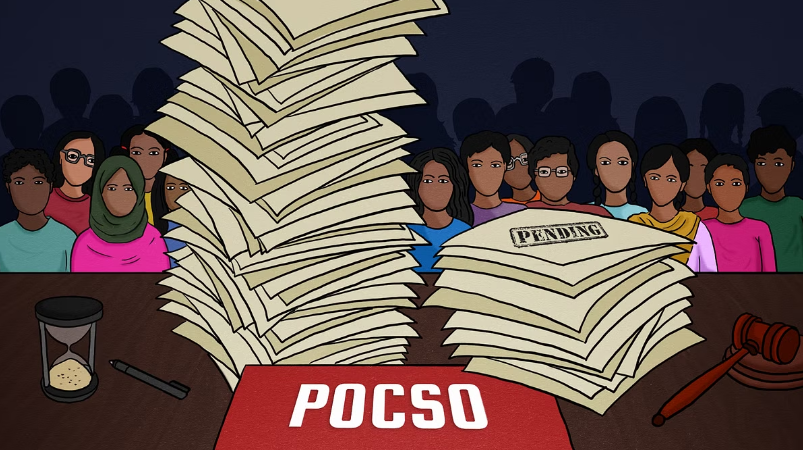The Protection of Children from Sexual Offences (POCSO) Act, 2012 is a landmark legislation enacted by the Indian Parliament to address the heinous crime of child sexual abuse. The Act aims to provide a robust legal framework for the protection of children from sexual offenses and to ensure their safety and well-being. However, despite its noble intentions, the effective implementation of the POCSO Act has been marred by various challenges and issues. This article will delve into the significant issues surrounding the implementation of the POCSO Act, analyze the relevant laws and sections, and propose solutions for a way forward.
Challenges in Implementation
- Underreporting and Lack of Awareness:
- One of the primary challenges in implementing the POCSO Act is the underreporting of child sexual abuse cases due to various socio-cultural factors, fear of stigma, and lack of awareness about the legal remedies available to victims.
- Delayed Justice:
- The legal process under the POCSO Act often suffers from delays, leading to prolonged trials and exacerbating the trauma experienced by the victims. This delay is primarily due to the overburdened judicial system and the lack of dedicated infrastructure for fast-track courts.
- Inadequate Protection Mechanisms:
- Despite the provisions of the POCSO Act, there is a lack of effective protection mechanisms for child victims and witnesses, leading to instances of intimidation and harassment, thereby hindering the justice delivery system.
- Inadequate Rehabilitation and Support Services:
- Many child victims of sexual abuse are left without adequate rehabilitation and support services, including counselling, medical assistance, and educational support, which are essential for their physical, emotional, and psychological well-being.
- Lack of Sensitization among Stakeholders:
- There is a significant lack of sensitization among various stakeholders, including law enforcement agencies, judiciary, medical professionals, and society at large, regarding the unique needs and vulnerabilities of child victims of sexual abuse.
Relevant Laws and Sections
- POCSO Act, 2012:
- The POCSO Act, 2012, provides a comprehensive legal framework for the protection of children from sexual offenses. It defines various sexual offenses against children, including sexual assault, sexual harassment, and pornography, and prescribes stringent punishments for offenders.
- Criminal Procedure Code (CrPC):
- The CrPC contains procedural provisions for the investigation and trial of offenses under the POCSO Act. It outlines the procedures for recording statements of victims and witnesses, conducting medical examinations, and ensuring a fair and expeditious trial.
- Indian Evidence Act:
- The Indian Evidence Act contains provisions regarding the admissibility of evidence in court proceedings. It is crucial to ensure that evidence related to child sexual abuse cases is collected, preserved, and presented in accordance with legal principles.
- Juvenile Justice (Care and Protection of Children) Act, 2015:
- The JJ Act, 2015, complements the POCSO Act by providing for the care, protection, and rehabilitation of child victims of sexual abuse. It mandates the establishment of special juvenile police units and child welfare committees to address the needs of child victims.
- Information Technology Act, 2000:
- The IT Act, 2000, contains provisions related to the prevention and punishment of cybercrimes, including online child sexual abuse and exploitation. It is instrumental in combating digital forms of child sexual abuse and ensuring the safety of children in cyberspace.
Way Forward
- Enhanced Awareness and Sensitization:
- There is an urgent need for enhanced awareness and sensitization campaigns aimed at various stakeholders, including law enforcement agencies, judiciary, healthcare professionals, educators, and the general public, to ensure a better understanding of child sexual abuse issues and the provisions of the POCSO Act.
- Capacity Building and Training:
- There should be systematic capacity-building and training programs for police officers, prosecutors, judges, and other relevant stakeholders involved in the implementation of the POCSO Act. These programs should focus on child rights, child-friendly procedures, victim-centred approaches, and trauma-informed practices.
- Strengthening Protection Mechanisms:
- It is imperative to strengthen protection mechanisms for child victims and witnesses by establishing child-friendly courts, providing legal aid and support services, ensuring confidentiality and privacy, and implementing witness protection measures to prevent intimidation and harassment.
- Expediting Legal Proceedings:
- Special fast-track courts should be established exclusively for the trial of POCSO cases to ensure swift justice for child victims. Additionally, the use of technology, such as video conferencing for recording statements and conducting hearings, can help expedite legal proceedings and minimize delays.
- Comprehensive Rehabilitation and Support Services:
- Comprehensive rehabilitation and support services, including counselling, medical assistance, educational support, and vocational training, should be provided to child victims of sexual abuse to facilitate their recovery and reintegration into society.
Conclusion
The effective implementation of the POCSO Act requires concerted efforts from all stakeholders, including the government, judiciary, law enforcement agencies, civil society organizations, and the community at large. By addressing the challenges and issues outlined above and adopting a holistic approach encompassing awareness, sensitization, capacity building, protection mechanisms, and rehabilitation services, we can ensure better protection and justice for child victims of sexual abuse and create a safer environment for all children.
Adv. Khanak Sharma


Статья содержит анализ преимуществ и недостатков различных решений, связанных с темой.
Я бы хотел отметить качество исследования, проведенного автором этой статьи. Он представил обширный объем информации, подкрепленный надежными источниками. Очевидно, что автор проявил большую ответственность в подготовке этой работы.